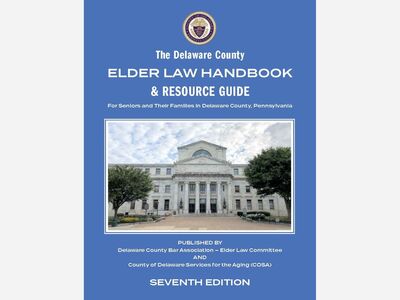Problems surrounding a Chester County probate might have been avoided with one clause
A case reported last month in Chester County, Pennsylvania underscores the utility of something called an “in terrorium clause” in your Last Will and Testament.
An in terrorem clause is from Latin for "in fear." It is any provision in a will which threatens that if anyone challenges the legality of the will or the estate administration, then that person will be disinherited or given $1.00, instead of receiving his or her stated bequest. It may also be used for trusts.
There is a specific Pennsylvania statute, 20 Pa.C.S. §2521, that addresses in terrorem clauses. It states that “[a] provision in a will or trust purporting to penalize an interested person for contesting the will or trust or instituting other proceedings relating to the estate or trust is unenforceable if probable cause exists for instituting proceedings.”
Although any beneficiary may still proceed if there is probable cause to believe the estate or trust is being improperly handled, an in terrorem clause is intended to discourage beneficiaries from frivolous legal battles after the testator is deceased. However, if the will is challenged and found to be invalid (perhaps because of lack of capacity or undue influence), then the in terrorem clause which was part of the failed will fails as well.
Also, if you completely disinherit someone, there is not much of a threat. If the person you are concerned about challenging the will is not a beneficiary, he or she has nothing to forfeit (and nothing to “fear”). So an in terrorem clause would have no effect on him or her. For the clause to work, you must leave enough to the disfavored beneficiary so that the beneficiary has too much to lose if the challenge fails.
The estate of John Di Joseph, of Chester County, demonstrates the value of these clauses. John Di Joseph, Jr., operated an Allstate insurance agency in South Philadelphia prior to retirement He passed away a widower, in May of 2016. a resident of Freedom Village at Collegeville. His Last Will and Testament was probated in Chester County. Mr. DiJoseph had two sons, Robert and Stephen. Robert worked with him at his insurance agency for the better part of forty years and was in daily communication with him since that time. Robert also lived about a mile away from his father while he lived at Freedom Village in Coatesville. Robert served as agent under his father’s advance medical directive and power of attorney and cared for his father in his final years. In his will, Mr. Di Joseph divided his estate 70% to his son Robert, and 30% to his other son, Stephen. Because John DiJoseph named Robert as beneficiary of various business contracts, and joint owner of some investment accounts, the bulk of the estate were non-probate assets. Since he received very little from the estate, it is arguable that Stephen had nothing to lose by commencing litigation to contest the administration of his father’s estate. One issue was a $147,000 loan that Robert may have owed his father and whether it should have become part of the probate estate. If indeed there was a loan, Stephen would be entitled to 30% of it, or $49,000. Hence, Stephen commenced litigation.
After hearings, Judge Tunnell of the Chester County Orphans Court held that Stephen’s claims were frivolous. Presumably, because the legal fees consumed most of the probate estate, there was nothing left to distribute to Stephen.
The court did not mention an “in terrorum clause” in the Will. But it is important the court specifically held that any of the allegations by Stephen were frivolous. Under those circumstances, an in terroreum clause might have been a good idea.
I cannot think of any reason that anyone would not include such a clause in their Final Will and Testament. If you can think of a reason, please comment below.
tags: legal, estate planning documents, recent cases








